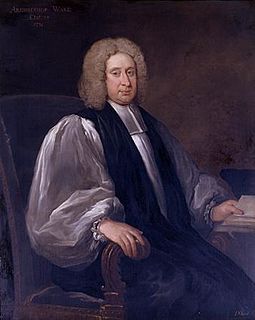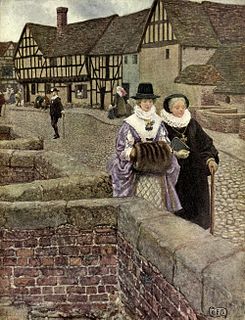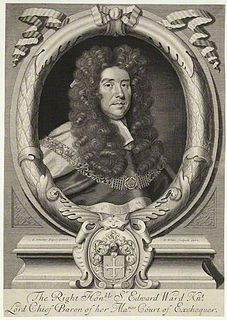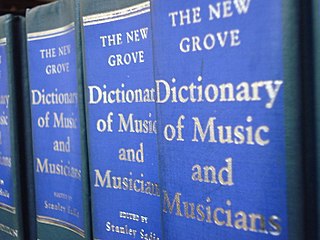
William Wake was a priest in the Church of England and Archbishop of Canterbury from 1716 until his death in 1737.
John Eccles was an English composer.

William Boyce was an English composer and organist.
Christopher Hatton, 1st Baron Hatton KB PC FRS was a distant relation of the Elizabethan politician, Sir Christopher Hatton and a prominent Royalist during the reign of King Charles I of England.

Thomas Ford was an English composer, lutenist, viol player and poet.

Admiral of the Fleet George Legge, 1st Baron Dartmouth PC was an English naval commander who gave distinguished service to both Charles II and James II.
John Travers was an English composer who held the office of Organist to the Chapel Royal from 1737 to 1758. Before filling several parochial posts in London he had been a choir boy at St. George's Chapel, Windsor and a pupil of Johann Christoph Pepusch.
Richard John Samuel Stevens was an English composer and organist.
Daniel Cawdry (Cawdrey) (1588–1664) was an English clergyman, member of the Westminster Assembly, and ejected minister of 1662.
Thomas Greaves (1612–1676) was an English orientalist, a contributor to the London Polyglot of Brian Walton.

William Jackson, referred to as Jackson of Exeter, was an English organist and composer.
Scrope Howe, 1st Viscount Howe was an English politician. He was the Member of Parliament (MP) for Nottinghamshire from 1673 to 1685 and January 1689 to 1691, and from 1710 to 1713.
Lewis Atterbury D.D., the elder was an English clergyman and writer.
John Bridges (1666–1724) was an English lawyer, antiquarian and topographer.

Sir Edward Ward (1638–1714) was an English lawyer and judge. He became chief baron of the exchequer, and is best known as the judge in the state trial for piracy of Captain Kidd.
John Villiers was an English courtier from the Villiers family. The eldest son of Sir George Villiers and Mary Beaumont, later Countess of Buckingham, he was the brother of King James I's favourite, George Villiers, 1st Duke of Buckingham.
John Isham (1680?–1726) was an English composer and organist.
Zacheus Isham, D.D. (1651–1705) was a Church of England clergyman and religious author.
Martin Lluelyn (1616–1682) was a poet and physician of probable Welsh ancestry.
Samuel Akeroyde was a popular and prolific composer of songs in the latter part of the 17th century. He was born in Yorkshire. He wrote more than 100 songs.










